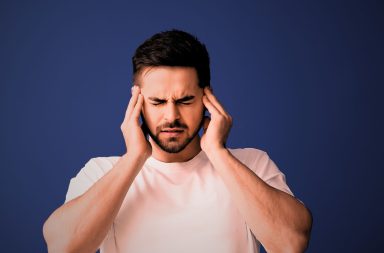Freespira, Inc., the maker of the first FDA-cleared digital therapeutic to significantly reduce or eliminate symptoms of panic attacks, panic disorder and post-traumatic stress disorder (PTSD) in only 28 days, announced findings from a study in the Journal of Applied Psychophysiology and Biofeedback demonstrating that PTSD severity can be significantly reduced with its first-of-its-kind treatment.
The peer-reviewed study, conducted at the Palo Alto Veterans Affairs Health Care System, found that 88% of subjects experienced a clinically significant drop in the standard clinical measure of PTSD severity (CAPS-5 score) two months after treatment with Freespira. Moreover, 48% of subjects experienced remission from PTSD two months after treatment, and that number increased to 50% at six months post-treatment. Associated measures of mental and physical health also improved and persisted at the six-month mark.
Nearly 9 million people in the U.S. struggle with PTSD, including 470,000 military veterans. The disruption to their lives is devastating, affecting everything from sleep, to their ability to work, to personal relationships. Moreover, data from the Veterans Administration (VA) indicate that the total cost of care for veterans with PTSD is more than four times higher than for those with other behavioral health conditions. The primary evidence-based treatments for PTSD – trauma-focused psychotherapies and medications, predominantly antidepressants – "have had varying degrees of success in their effectiveness and tolerability, including high dropout and nonresponse rates," according to several previous studies referenced in the new study.
By contrast, Freespira addresses the underlying physiological contributors to PTSD symptoms (as well as the panic attacks often associated with PTSD) by normalizing breathing irregularities developed in response to underlying carbon dioxide (CO2) hypersensitivity, which previous studies have shown contributes to this complex, hard-to-treat condition. As an alternative to medications and therapy, Freespira’s at-home, twice daily, 17-minute treatments stabilize breathing patterns to reduce or eliminate symptoms. The digital therapeutic provides users with real-time physiological feedback-based training and telehealth coaching that helps to guide patients through the care journey to deliver maximum benefits.
There is a need for safe, tolerable, acceptable, and effective treatments for the symptoms of PTSD that can be easily and widely disseminated for use in a patient’s home, including to rural residents who have difficulty accessing in-person services. The combination of clinical improvement to six months and high adherence and participant satisfaction rates suggests that this non-invasive, digital therapeutic is a promising intervention for PTSD.
wrote the study’s authors, led by Michael J. Ostacher, MD, MMSc, MPH, Professor of Psychiatry and Behavioral Sciences at Stanford University.
The study
Study participants included combat veterans and sexual assault victims
Researchers recruited the study’s participants both in the clinical setting of the Palo Alto VA facility and through posters and online advertisement. The participants, both men and women, all had a primary diagnosis of PTSD and a mean age of 51. The sources of primary trauma leading to their development of PTSD were combat-related (29%), sexual assault (33%), and a variety of other factors such as the suicide of a family member. Seventy-one percent of the participants were military veterans, with the rest civilians.
The published study did not reveal the sex or military experience of participants who experienced
sexual assault.
Participants who completed a questionnaire after treatment reported high rates of satisfaction with Freespira.
Eighty-three percent said they “would” or “would definitely” recommend the treatment to a friend or family member, and 76% said they were “satisfied” or “very satisfied” with their treatment. Both of these responses remained stable or slightly increased at both the two-month and six-month follow-up.
When asked to rank the benefits of Freespira in order of importance, 73% chose “I could use it at home” as either their No. 1 or No. 2 choice.
While numerous peer-reviewed studies have demonstrated that Freespira is effective at reducing symptoms of panic disorder, this study confirms that Freespira is also effective for patients suffering from PTSD. We are especially gratified that the study revealed Freespira can be helpful to our military veterans who suffer from PTSD due to combat trauma, as well as to victims of sexual assault. This study is great news for the millions of Americans whose lives have been derailed by trauma of all kinds, and who yearn for a convenient, at-home treatment to relieve their symptoms.
said Dean Sawyer, Chief Executive Officer of Freespira, Inc.



